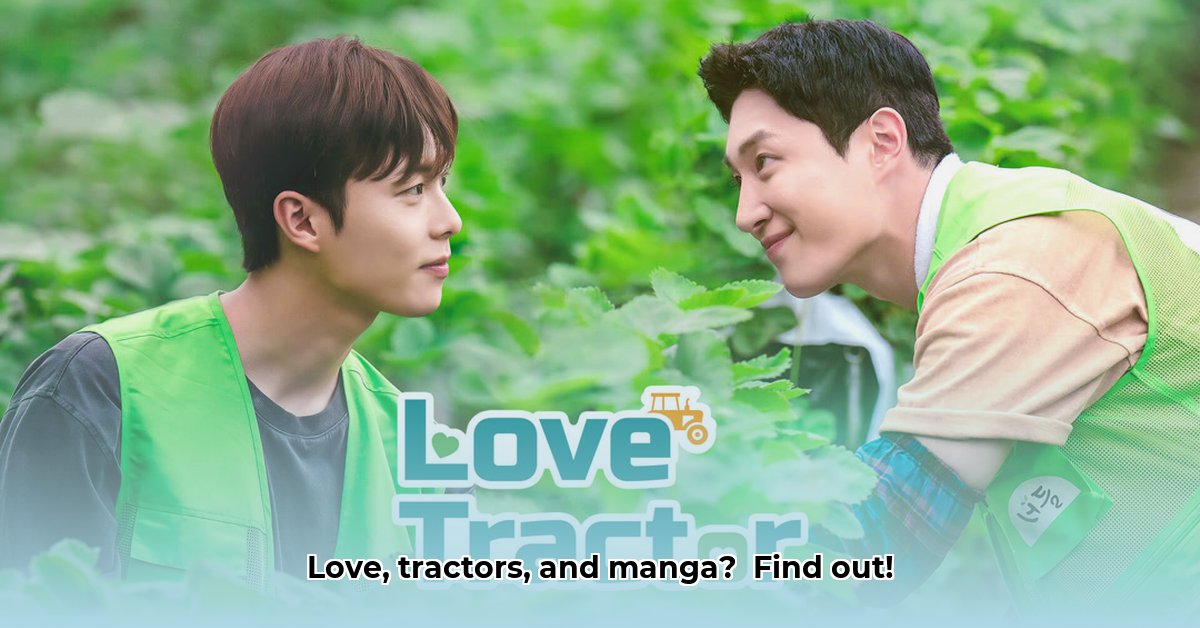
Can Manga Revitalize Interest in Sustainable Agriculture?
The unexpected rise of Love Tractor, a manga series debuting its first chapter on platforms like MangaBuddy and MangaToto, presents a unique opportunity to engage a new generation in sustainable farming practices. While not explicitly focused on agricultural techniques, its considerable online popularity suggests a potential pathway for promoting environmentally conscious farming through an engaging, largely untapped audience. This article analyzes the potential of leveraging Love Tractor’s success to address the critical need for increased interest in sustainable agriculture.
How can a manga about tractors possibly promote sustainable farming? The significant online engagement with Love Tractor Ch 1 demonstrates a latent interest in narratives set in rural environments. This suggests a receptive audience for stories that, while not explicitly educational, can indirectly introduce concepts related to farming life and its challenges.
A Multi-pronged Strategy for Engaging a New Audience
To effectively harness this potential, a multifaceted approach is necessary:
Strategic Partnerships: Collaborations between agricultural educators, governmental agencies, and popular manga platforms are crucial. Such partnerships facilitate the creation and distribution of targeted educational materials within a familiar and engaging digital format. Imagine learning about soil conservation or water management through dynamic, visually appealing comics – a significant departure from traditional, often less engaging agricultural education.
Creative Content Development: Commissioning original manga content explicitly focused on sustainable farming techniques provides a direct means of disseminating information. This approach allows for the creation of exciting, easy-to-understand narratives that explain complex agricultural concepts in a relatable and visually compelling manner.
Cultivating Online Communities: Leveraging digital platforms to establish online communities for farmers, providing a space for peer-to-peer interaction, knowledge-sharing, and mutual support. This interactive approach can amplify the message of sustainable agriculture, fostering a stronger sense of community and shared purpose among farmers.
Data-Driven Evaluation: Rigorous research is vital to assess the effectiveness of manga-based educational campaigns. This data-driven approach will provide the evidence necessary to secure further investment and refine future strategies. This research could compare engagement levels and knowledge retention between traditional methods and manga-based education.
Navigating the Challenges: Fiction and Reality
While Love Tractor’s popularity offers considerable potential, it’s crucial to acknowledge limitations. The manga, being fictional, does not provide direct instruction on agricultural practices. Therefore, any educational campaign must supplement the narrative with concrete information about sustainable farming techniques. Furthermore, a comprehensive understanding of the manga's readership demographics is essential for creating truly effective communication strategies. Currently, data on reader demographics remains limited, highlighting the need for further research.
A Vision for the Future: Collaboration and Innovation
The key to unlocking the full potential of manga in promoting sustainable agriculture lies in strategic collaboration. By combining the engaging nature of manga with the reach of digital platforms, we can reach a much broader audience and communicate complex concepts effectively. The success of this strategy depends on creative content development, targeted dissemination, and robust evaluation. The potential is substantial; the challenge lies in transforming this potential into tangible action through collaborative efforts. The question is not if, but how manga can contribute to a greener future for agriculture.
Actionable Steps for Different Stakeholders:
| Stakeholder Group | Short-Term Actionable Steps | Long-Term Vision |
|---|---|---|
| Educators | Pilot manga-based lesson plans in schools; partner with manga creators | Develop comprehensive, multimedia agricultural curricula |
| Government Agencies | Fund research on manga's impact; launch targeted social media campaigns | Integrate manga-based education into national agricultural strategies |
| Manga Creators/Publishers | Develop content focused on sustainable farming; explore partnerships with agricultural organizations | Create dedicated manga platforms for agricultural education |
| Farming Communities | Encourage farmers to share their stories; participate in online discussions | Foster online spaces for knowledge exchange and support |
The path forward requires ongoing research and adaptation. Initial indications suggest a significant potential for manga to contribute to sustainable agriculture. However, continued data collection and refinement of outreach strategies will be key to maximizing its impact.